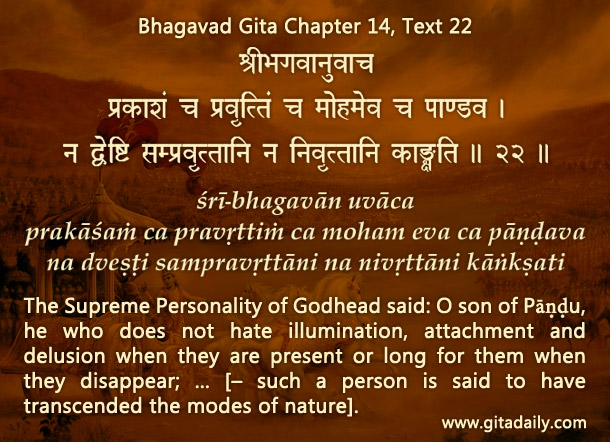Don’t let the craving for clarity distract us from working with whatever clarity we have
Suppose we are driving through a storm. If water, sleet and dust obscure our front window, we will keep navigating the car with whatever clarity we have. Though we would long for clarity, we won’t make our driving conditional to clarity. We won’t crave so much for clarity as to be blinded by demanding its presence or by resenting its absence.
We need to be similarly pragmatic when driving our body-mind vehicle. During our life-journey, external difficulties or internal dilemmas may steal our clarity about what to do, why and how. As clarity can help us function optimally, we can seek it. But seeking clarity shouldn’t morph into compulsive craving for clarity or relentless resentment about its absence. Why not? Because compulsive craving characterizes the mode of passion, and relentless resentment characterizes the mode of ignorance. And both these lower modes alienate us from the mode of goodness, which is characterized by clarity (Bhagavad-gita 14.11).
Pertinently, the Bhagavad-gita (14.22) recommends that we unemotionally observe the arrival and departure of the various modes in our consciousness. For such detached observation, we need to identify ourselves as souls who are situated above the arrival and departure of the various modes, including the mode of goodness. That is, when the mode of goodness departs, taking clarity with it, we needn’t crave obsessively for it, thereby degrading our consciousness to the mode of passion. Instead, we can use spiritual knowledge and practices to rise above the modes to transcendence and strive to do our duty in a devotional mood, using whatever clarity we have. By such devotional diligence, our consciousness will become purified and elevated above the fluctuations of the modes. And then clarity will return – not the short-lived clarity coming from the mode of goodness, but the long-lived clarity coming from spiritual purity.
Think it over:
- What is the problem with a craving for clarity?
- How can we observe the modes dispassionately?
- How can clarity come to us sustainably?
***
14.22 He who does not hate illumination, attachment and delusion when they are present or long for them when they disappear; … [– such a person is said to have transcended the modes of nature].
To know more about this verse, please click on the image
Explanation of article:
https://www.youtube.com/watch?v=96rgbeSMPDE&feature=youtu.be
Podcast:


Hare Krishna. Very useful piece of wisdom.